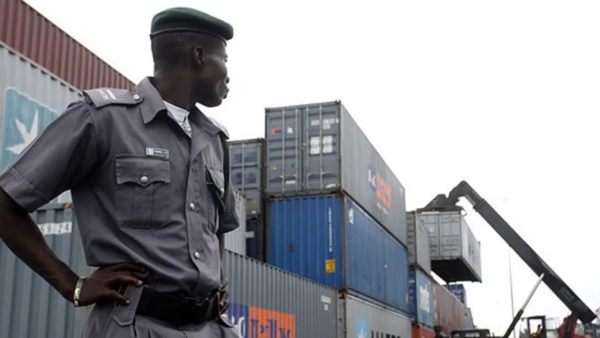•Customs agents hint at confusion among implementation agencies
•Inflation, exchange rate defeat policy objectives – Analysts
•Policy not optimal – Afrinvest
Hopes of many low-income Nigerians for lower food prices may be dashed as the zero import duty policy on essential food staples appears to have hit fresh hitches.
Stakeholders cite citing lack of coordination, unclear directives, and underlying agronomic and infrastructural challenges as major obstacles.
This comes against the backdrop of renewed inflationary pressure on the purchasing power of vulnerable citizens, the main reason for the measure with the objective of moderating the prices of essential food items.
Nigeria’s inflation has consistently maintained an upswing since the assumption of office by President Bola Tinubu in May 2023 with a May 2024 figure at 33.95%, up massively from the 22.4% he inherited in May 2023.
Amidst the inflationary pressures President Tinubu, marking his one year in office, announced a 150-day duty-free import window for food commodities to ensure a reduction in food inflation in Nigeria.
However, Nigeria’s inflation rate which peaked at 34.19% in June 2024 before declining for two
consecutive months of July at 33.4% and 32.15% in August, reversed the progress in September, rising to 32.7%, according to data released last week by the National Bureau of Statistics. This indicates that the hardship is far from moderate.
Amidst this development, Financial Vanguard findings show that the softening measures through the zero-duty food imports are not going to happen any time soon as the government agencies involved have been tied down by role conflicts in the process of the implementation.
The initial setback, Vanguard learnt, was the need for the Ministry of Finance to issue relevant directives for commencement, a situation which led to an initial two-month delay.
Also, the Nigeria Customs Service (NCS) said that the federal government would forgo N188.4 billion in revenue over the five-month window for the duty waiver and this may have unsettled both the Finance Ministry and the Federal Inland Revenue Service.
On August 15, 2024, Customs announced that the program was ready to commence following a letter of implementation from the Finance Ministry to this effect dated August 08, 2024.
But two and half months after the letter, Vanguard learnt that the programme had been further bogged down by bureaucracy and major disagreements amongst the implementing agencies.
Vanguard further learnt that the government agencies are now evasive in responding to inquiries from stakeholders due to obvious ambiguity surrounding the implementation.
Customs agents hint at confusion
Giving further insight into the controversies, a key stakeholder in the policy implementation value chain, Lucky Amiwero, who is the President of the National Council of Managing Directors of Licensed Customs Agents (NCMDLCA), expressed frustration over the unclear status of the zero import duty implementation.
Amiwero, speaking to Vanguard cited lack of coordination among the government agencies as the primary cause of the logjam.
He stated: “After our last petition seeking clarification on the implementation date, the government hasn’t responded. We only received feedback from the Federal Inland Revenue Service; there has been no clarification from any other government agency. We cannot waste money writing to a government that came up with a policy they cannot implement.”
Expressing frustration with the situation Amiwero said, “Look at the economy now, the economy is in comatose. So we are doing all these things to intervene to see how the government can reduce costs, but look at the policy they came up with, we cannot find the policy. We don’t know what is going on’’.
According to him, ‘‘the implications of this delay in implementation are severe, with many companies facing potential closure due to escalating energy costs, exchange rates, and oil prices. There’s no capital flow in the country, and the import system is dwindling because of the government’s inability to intervene and reduce costs.”
Policy not optimal
Meanwhile, Afrinvest Research, an arm of Afrinvest West Africa, a Lagos-based investment house, has questioned the policy’s effectiveness, suggesting that the protectionist approach may not yield optimal results due to Nigeria’s agronomic and infrastructural challenges.
The analysts at the investment house, in a report titled, ‘Suspension of Import Duties on Food Staples, Silver Bullet to Inflation Crises?’ stated: “The 150-day suspension period may need to be extended for more impactful results.
“However, adopting this stance without addressing gaps in the domestic agriculture value chain might deliver a weak outcome.
“Although the exact commencement date of the tax-free importation window is yet to be announced, the near-term objective policy is to paper cover cracks in domestic supply gaps induced by persistent conflict along the food belt, adverse weather conditions, as well as poor quality and high cost of agriculture inputs’’.
Inflation, exchange rates defeat policy objectives
Also pointing to the implications of the delay in the implementation of the zero-duty program on prices of the food items, the analysts at Afrinvest noted that both inflation and exchange rate have already overtaken the expected price moderation on those commodities targeted by the measure.
‘‘We note that the renewed pressure on the headline inflation rate was mainly fueled by the food inflation sub-basket.
‘‘Precisely, the food inflation rate rose by 25 bases points year-on-year and 27 bps month-on-month to 37.8% and 2.6% sequentially, reflecting the negative pass-through effect of energy price surge and transportation cost MoM, and the devastating impact of flood in key agrarian communities during the period.
‘‘A similar trend was observed on imported food inflation surging by 3.1 percentage points to 39.5%.’’
In addition, the analysts noted that the exchange rate has also moved against the policy objects while the delay lasted, stating that Naira has depreciated by more than 5.5% in the official market and nearly 10 per cent in the parallel market since the policy was announced, a development which has ultimately increased the prices of those commodities.


